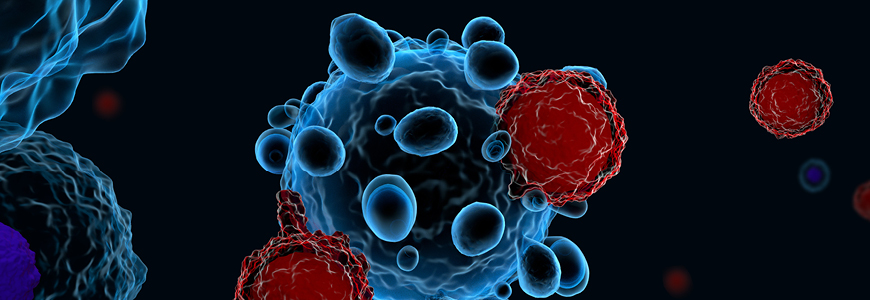Advances in cellular therapy and transplants have greatly improved survival rates in many types of pediatric cancer and blood disorders, and that progress continues to transform care, according to Kris M. Mahadeo, MD, MPH, division chief of transplant and cellular therapy in the Duke Department of Pediatrics.
One striking advance has been the introduction of the chimeric antigen receptor T-cell (CAR-T) drug tisagenlecleucel. Prior to the CAR-T introduction, 90% of children with relapsed or refractory cases of the most common form of pediatric leukemia — acute lymphoblastic leukemia or ALL — would die. That number has reversed, with 90% of patients treated with CAR-T therapy now entering remission.
Duke was one of the first centers in the Southeast to offer CAR-T therapy after participating in the clinical trial that led to its approval.
“There is still work to do,” Mahadeo says. “How do we get from 90% to 100% survival? What does the next generation of these cell therapies look like? And how can we extend this success to acute myeloid leukemia and solid tumors, such as sarcomas or brain tumors?”
Research into CAR-T therapies continues to evolve, with one promising approach involving targeting other antigens. Mahadeo has partnered with Timothy Alan Driscoll, MD, on research into improving and extending these therapies.
In addition to looking for new therapies, Mahadeo and his colleagues are working to improve outcomes in other ways. “These therapies are associated with unique toxicities. A lot of our research is focused on learning how to prevent or better manage them to prevent long-term complications,” Mahadeo says.
As co-chair of the Pediatric Acute Lung Injury and Sepsis Investigators (PALISI) Network Transplant and Cancer Immunotherapy Subgroup, Mahadeo partners with transplant and critical care providers around the globe to improve recognition, mitigation, and treatment of complications. At Duke, he leads this effort along with Jerelyn Moffet, a pediatric nurse practitioner and executive committee member of the PALISI hematopoietic cell transplantation-specific comorbidity index.
Mahadeo also leads the multicenter POEM study (A PrOspective Registry of Pediatric Cellular Therapy Patients at Risk for Endothelial Dysfunction, Sinusoidal Obstruction Syndrome and/or Multi-Organ Dysfunction Syndrome [MODS]), which aims to identify patients who may be at risk for developing toxicities during their transplant because early intervention can lessen the problems.
“Our goal in treating many disorders is not simply to have you survive, but to allow you to achieve everything in life that you could without your disease,” Mahadeo says.
“To that end, Andrea Bauchat, DO, leads our survivorship program, partnering with our Pediatric Transplant and Cellular Therapy Family Support Program as well as referring providers. We work with the local referring team, so when patients return home, the referring providers feel supported in terms of managing any challenges associated with the transplant,” Mahadeo says.
For example, patients with a metabolic disorder such as Hurler’s syndrome require close long-term follow-up to overcome orthopaedic issues not solved with the transplant. The transplants and follow-up have been so successful in removing barriers that some Duke Hurler’s patients have gone on to graduate from college, Mahadeo says. Vinod K. Prasad, MD, MBBS, leads the metabolic transplant program.
It has been more than 30 years since Duke transplant physician Joanne Kurtzberg, MD, performed the world’s first cord blood transplant from an unrelated donor in a child with leukemia. Duke gained a reputation for that specialty, but as a National Transplant Center of Excellence, has expertise in many more areas.
“More than 2,200 transplants later, we offer a comprehensive pediatric program for diagnoses and donor types, including high-risk cancers, metabolic diseases, primary immune deficiencies, sickle-cell anemia, and thalassemia,” Mahadeo says.
For those last two conditions—hemoglobinopathies such as sickle-cell disease and thalassemia—Mahadeo partners with Paul L. Martin, MD, PhD, to lead a program offering newer curative therapies such as transplant from a matched sibling donor, related haplo-donor, or half-matched parent as well as autologous gene therapies.

